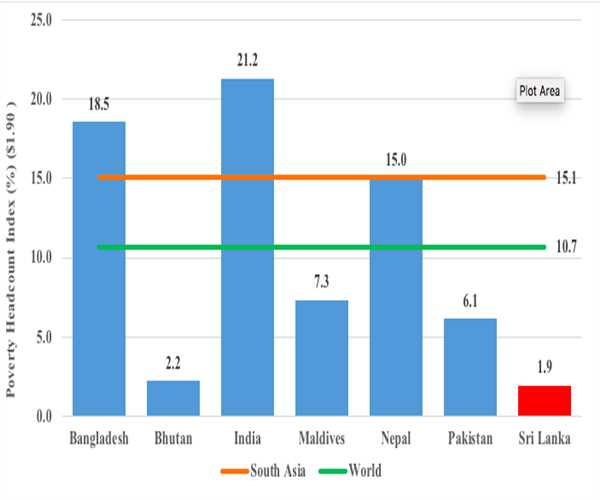Bangladesh is the poorest country in South Asia, with a GDP per capita of \$1,210 (PPP). There are a number of factors that contribute to Bangladesh's poverty, including:
- High population density: Bangladesh is one of the most densely populated countries in the world, with over 160 million people living in an area the size of Pennsylvania. This high population density puts a strain on resources and makes it difficult to develop the country's economy.

- Low literacy rate: Bangladesh's literacy rate is 72%, which is relatively low compared to other countries in South Asia. This low literacy rate makes it difficult for people to get good jobs and contribute to the economy.
- Low agricultural productivity: Bangladesh is an agricultural country, but its agricultural productivity is low. This is due to a number of factors, including poor soil quality, lack of irrigation, and pests and diseases.
- Natural disasters: Bangladesh is prone to natural disasters, such as floods, cyclones, and droughts. These natural disasters often damage infrastructure and crops, which can set back economic development.
- Political instability: Bangladesh has experienced a number of political crises in recent years. This political instability has made it difficult for the government to implement economic reforms and attract foreign investment.
Despite these challenges, Bangladesh has made some progress in reducing poverty in recent years. The country's GDP has grown steadily, and the poverty rate has fallen from 56% in 1991 to 21% in 2019. However, there is still much work to be done to reduce poverty in Bangladesh.
Here are some of the things that Bangladesh can do to reduce poverty:
- Invest in education: Improving the country's education system will help to increase literacy rates and give people the skills they need to get good jobs.
- Increase agricultural productivity: By improving soil quality, providing irrigation, and controlling pests and diseases, Bangladesh can increase its agricultural productivity and reduce food insecurity.
- Reduce vulnerability to natural disasters: By building stronger infrastructure and providing early warning systems, Bangladesh can reduce the damage caused by natural disasters.
- Promote political stability: By creating a stable political environment, Bangladesh can attract foreign investment and create jobs.
By addressing these challenges, Bangladesh can continue to reduce poverty and improve the lives of its people.